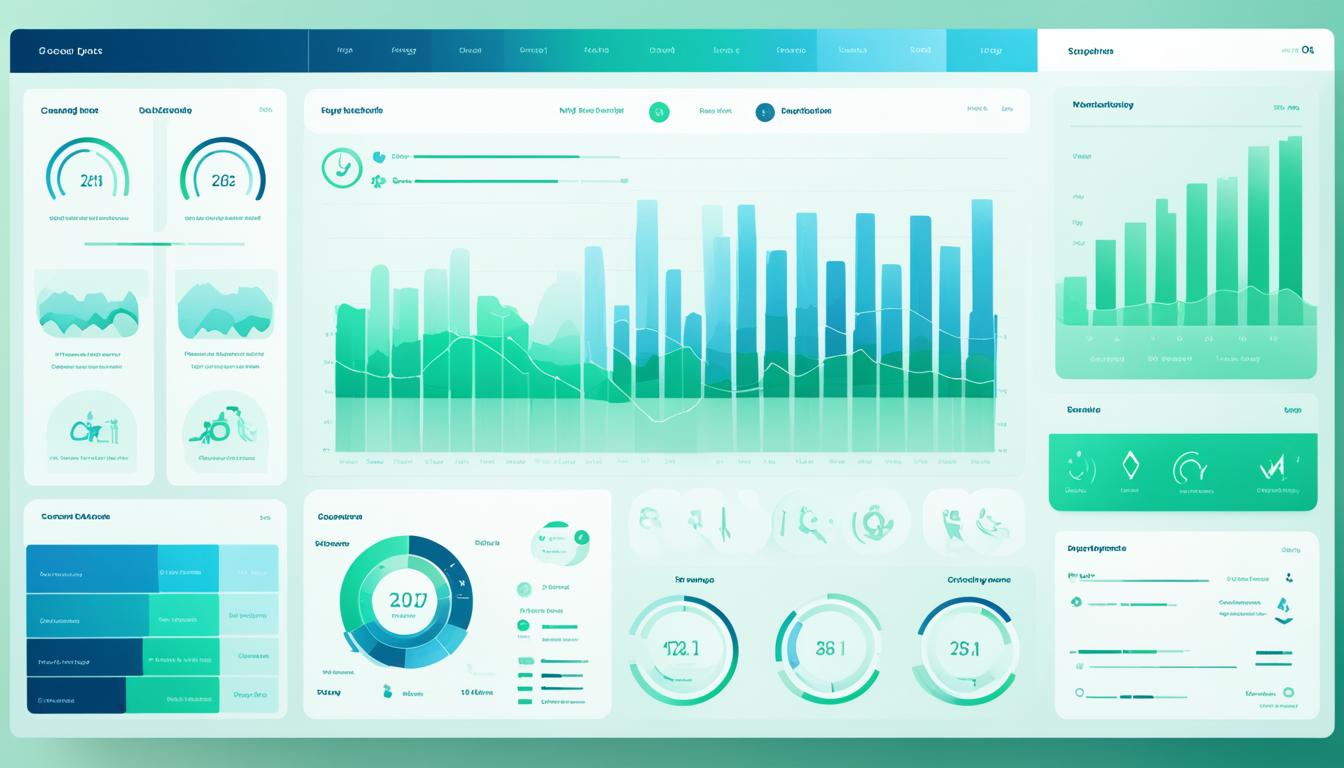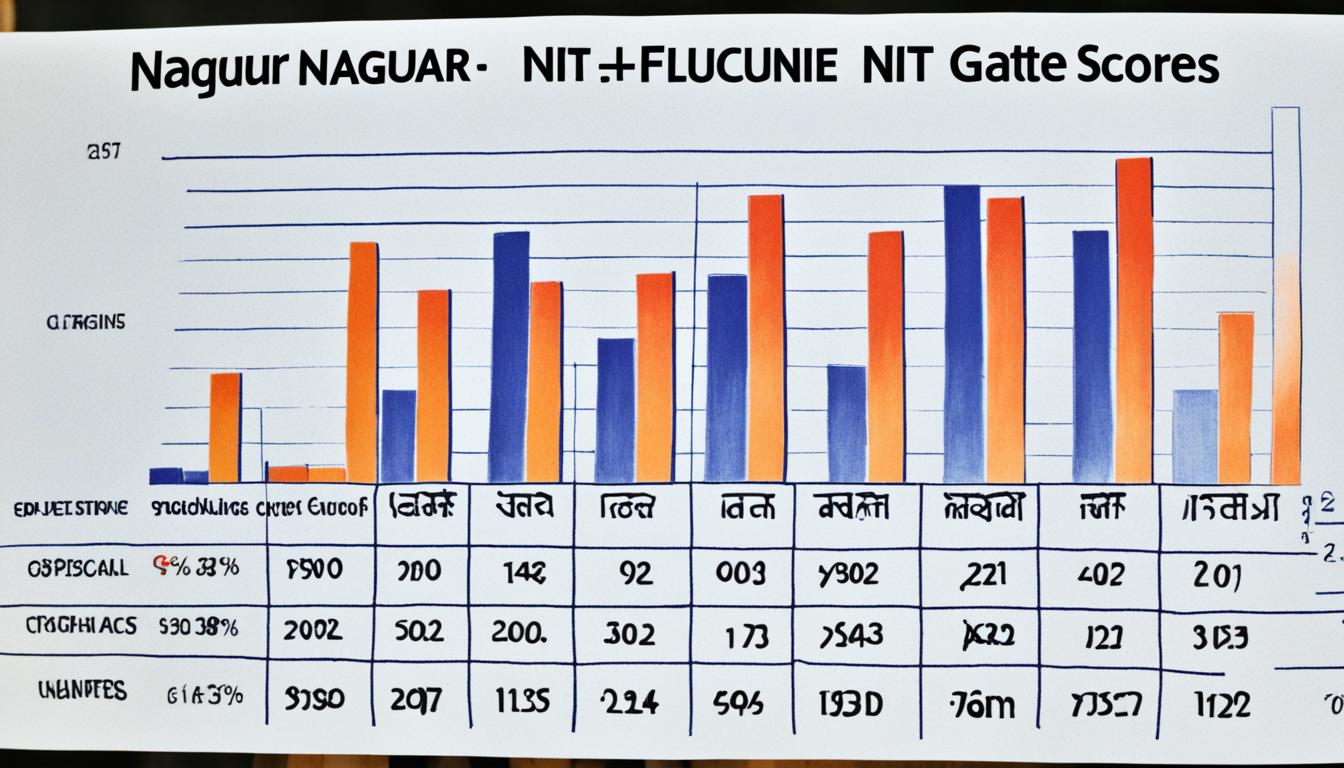Welcome to our comprehensive guide on electronic medical records systems (EMRs) and their impact on healthcare outcomes. In this section, we will explore the importance of EMRs and delve into the findings of medical record software analysis. By understanding the significance of electronic medical records system outcomes, we can better appreciate the value that EMRs bring to patient care.
Key Takeaways
- EMRs provide comprehensive health reports, detailing medical record software findings and electronic medical records system outcomes.
- Analyzing EMR data allows for a better understanding of individual patient health and overall electronic health record performance.
- Advancements in healthcare technology have led to the digitization of patient records, facilitating efficient data management and analysis.
- EMRs streamline the process of data analysis and reporting, resulting in improved patient outcomes.
- By leveraging EMRs, healthcare providers can enhance patient care and contribute to better overall healthcare system outcomes.
Understanding Electronic Medical Records Systems
Welcome to the world of electronic medical records systems (EMRs), where data analysis and performance evaluation are paramount. In this section, we will delve deeper into the realm of EMRs, examining their impact on healthcare and the insights gained through comprehensive data analysis. Additionally, we will present the results derived from EMR analytics and explore their implications for electronic health record (EHR) performance.
EMRs serve as a digital repository for patient information, offering numerous benefits to healthcare providers and patients alike. By leveraging EMR data analysis, healthcare professionals can gain valuable insights into patient health trends, treatment effectiveness, and overall healthcare system performance.
Through rigorous examination and evaluation, electronic health record performance can be measured and optimized, leading to improved patient care outcomes. EMR analytics results provide valuable information on key performance indicators, allowing healthcare providers to identify areas for improvement and implement targeted interventions.
In order to illustrate the significance of EMR analytics, let’s take a look at an example:
“Through the extensive analysis of EMR data, healthcare providers discovered a pattern related to the presence of certain risk factors among patients with chronic conditions. By identifying this pattern, providers were able to develop targeted interventions to mitigate associated risks and enhance patient care.”
As seen in this example, EMR data analysis offers healthcare providers the opportunity to identify trends, optimize treatment plans, and enhance patient care strategies. By harnessing the power of EMR analytics, healthcare institutions can truly transform their data into actionable insights that drive improved patient outcomes.
Evaluating Electronic Health Record Performance
When it comes to evaluating electronic health record performance, comprehensive analysis is vital. By assessing key metrics such as data accuracy, accessibility, and interoperability, healthcare providers can ensure the highest standard of care delivery.
In the context of EMRs, data accuracy refers to the integrity and consistency of patient information. Accurate data is essential for making informed clinical decisions and providing personalized care. Additionally, the accessibility of electronic health records plays a crucial role in ensuring seamless communication and collaboration among healthcare providers, ultimately improving patient outcomes.
Furthermore, interoperability is a key feature of robust EMRs. Interoperable electronic health records enable the secure exchange of health information across different healthcare systems, allowing for a holistic view of patient health and coordination of care across multiple providers or healthcare facilities.
To summarize, understanding and optimizing electronic medical records systems are essential for improving electronic health record performance. By conducting thorough EMR data analysis, healthcare providers can uncover valuable insights and drive meaningful change in patient care.
| Evaluating Electronic Health Record Performance | Key Metrics | |
|---|---|---|
| Data Analysis | Data Accuracy | Ensuring integrity and consistency of patient information |
| Accessibility | Enabling seamless communication and collaboration | |
| Interoperability | Facilitating the exchange of health information | |
Embracing the power of EMRs and unlocking the potential of electronic health record performance allows healthcare providers to deliver high-quality care and improve patient outcomes. In the next section, we will explore the advancements in healthcare technology and their impact on patient care.
Advancements in Healthcare Technology and Patient Care
In today’s rapidly evolving healthcare landscape, advancements in technology play a critical role in enhancing patient care and improving outcomes. The evaluation of digital patient records and the summary of key information derived from medical records have become instrumental in delivering efficient and personalized healthcare services.
The use of healthcare technology reports has revolutionized the way healthcare providers access and manage patient information. By transitioning from traditional paper records to digital patient records, healthcare organizations can streamline processes, improve data accuracy, and enhance overall patient care.
One of the most significant benefits of digital patient records is the ability to access and exchange medical record information seamlessly. With electronic health records (EHRs), healthcare professionals can quickly retrieve and review patient data, enabling informed decision-making and providing more effective treatments. This access to comprehensive and up-to-date medical information empowers healthcare providers to deliver personalized and targeted care.
Furthermore, technological advancements have led to the development of innovative tools and solutions for medical record evaluation. Through data analytics and artificial intelligence algorithms, healthcare professionals can extract valuable insights from digital patient records. This process of medical record information summary facilitates a deeper understanding of patient health trends, identifies potential risk factors, and allows for proactive interventions.
“Digital patient records have transformed the way we deliver healthcare. The ability to access comprehensive information at our fingertips has revolutionized decision-making and ultimately improved patient care outcomes.” – Dr. Emily Johnson, Chief Medical Officer, XYZ Healthcare System.
To illustrate the impact of these advancements, let’s take a closer look at a summary of medical record information:
| Key Insights | Benefits |
|---|---|
| 1. Comprehensive patient health history | – Helps healthcare professionals make informed treatment decisions |
| 2. Allergies and medication records | – Reduces medication errors and adverse drug reactions |
| 3. Diagnostic test results | – Enables faster diagnosis and treatment planning |
| 4. Treatment plans and progress notes | – Facilitates continuity of care among healthcare providers |
| 5. Immunization records | – Improves public health monitoring and vaccination programs |
As healthcare technology continues to advance, we can expect further improvements in digital patient records evaluation. This enhanced accessibility and analysis of medical record information will drive better healthcare decision-making, ultimately resulting in improved patient outcomes and satisfaction.

Benefits of EMRs in Data Management
Electronic Medical Records (EMRs) have revolutionized the way healthcare providers manage patient data. The implementation of EMRs offers numerous benefits in data management, leading to improved patient care and streamlined processes. Let’s explore the advantages that EMRs bring to the table:
- Enhanced Accessibility: With an EMR system, medical records can be accessed securely, anytime, and from anywhere. This accessibility allows healthcare professionals to quickly retrieve patient information, review medical histories, and make informed decisions, ultimately optimizing patient care.
- Centralized Data Storage: EMRs enable the consolidation of patient data in a centralized and standardized format. This centralized approach simplifies record-keeping, eliminates the need for physical storage, and reduces the risk of information loss or duplication.
- Improved Efficiency: Through EMRs, healthcare providers can streamline administrative tasks, such as appointment scheduling, billing, and prescription management. Automation of these processes saves time, reduces errors, and allows medical staff to focus more on patient care.
- Accurate and Comprehensive Documentation: EMRs ensure accurate and comprehensive documentation of medical records. By capturing detailed patient information, including medical history, allergies, medications, and test results, EMRs provide a holistic view of each patient’s health, allowing for better diagnosis and treatment decisions.
- Data Analysis and Reporting: EMRs enable healthcare organizations to analyze patient data efficiently. By harnessing the power of analytics, medical professionals can identify trends, track outcomes, and generate valuable insights for continuous improvement in healthcare delivery.
- Improved Patient Safety: EMRs contribute to improved patient safety by reducing medication errors, minimizing the risk of adverse drug interactions, and ensuring accurate and up-to-date documentation. This comprehensive approach helps enhance patient outcomes and avoid potential harm.
As we can see, the benefits of using EMRs in data management extend beyond efficient record-keeping. Electronic Medical Records systems have the power to transform healthcare delivery, improve patient care, and drive positive outcomes. By leveraging EMRs, healthcare providers can streamline processes, enhance data analysis, and ultimately enhance the overall quality of care.
Ensuring Efficient Data Analysis and Reporting
In the realm of electronic medical records (EMRs), efficient data analysis and reporting play a vital role in driving positive outcomes. By harnessing the power of EMR data analysis, healthcare providers can unlock valuable insights that contribute to the overall success of the electronic medical records system.
EMRs provide a wealth of information, ranging from patient medical history and treatment plans to medication records and lab results. However, without proper analysis and reporting, this data remains untapped potential.
EMR data analysis empowers healthcare professionals to uncover trends, patterns, and correlations that may not be apparent at first glance. By utilizing advanced analytics tools and techniques, healthcare providers can derive actionable insights from vast amounts of patient data.
The Impact on Patient Outcomes
The findings of EMR data analysis have a direct impact on patient outcomes. By identifying high-risk patients, spotting potential medication interactions, and detecting disease trends, healthcare providers can make more informed decisions about patient care. This leads to improved treatment plans and enhanced patient safety.
Furthermore, efficient data analysis allows healthcare providers to proactively address issues such as medication errors, inefficient care delivery, and care gaps. By uncovering these areas of improvement, providers can implement targeted interventions that optimize patient care and improve overall outcomes.
Contributing to Electronic Medical Records System Outcomes
Efficient data analysis and reporting form the foundation of electronic medical records system outcomes. By regularly evaluating and assessing the data collected through EMRs, healthcare providers can identify areas that require attention and implement strategies for improvement.
These insights serve as a roadmap for enhancing the functionality, usability, and effectiveness of medical record software. By leveraging the findings of data analysis, software developers can address user pain points and refine their products to better serve the needs of healthcare professionals.
Ultimately, effective data analysis and reporting contribute to the continuous evolution and improvement of the electronic medical records system as a whole, ensuring that healthcare providers have access to the tools they need to deliver optimal patient care.
“The power of efficient data analysis lies in its ability to turn raw information into actionable insights, ultimately leading to better patient outcomes and a more efficient healthcare system.”
– Dr. Sarah Adams, Chief Medical Officer at MedTech Solutions
When it comes to EMRs, the importance of efficient data analysis and reporting cannot be overstated. By harnessing the transformative capabilities of EMR data analysis, healthcare providers can unlock valuable insights that drive positive outcomes, contribute to electronic medical records system success, and ultimately improve patient care.
Conclusion
In conclusion, this article has highlighted the significance of EMRs (Electronic Medical Records) and their impact on healthcare data management. We have discussed the various factors that contribute to electronic medical records system outcomes and emphasized the importance of efficient data analysis.
By leveraging healthcare technology and embracing digital patient records, healthcare providers can enhance patient care and improve overall outcomes. The use of EMRs allows for better management and organization of medical data, leading to more effective diagnosis and treatment strategies.
Furthermore, by utilizing EMR analytics and advanced software systems, healthcare professionals can gain valuable insights into patient trends and patterns. This information can be used to make informed decisions, optimize workflows, and enhance the quality of care delivered to patients.
Overall, the integration of EMRs into healthcare systems has revolutionized data management in the industry. By harnessing the power of electronic medical records, healthcare providers can streamline their processes, deliver personalized care, reduce errors, and ultimately improve patient outcomes.
FAQ
What are electronic medical records system outcomes?
Electronic medical records system outcomes refer to the results and findings obtained from the analysis of digital patient records and healthcare data. They provide valuable insights into patient care, treatment outcomes, and overall healthcare management.
How is data analysis performed on electronic medical records?
Data analysis on electronic medical records involves evaluating and interpreting the information recorded in digital patient records. Through statistical analysis and data mining techniques, healthcare professionals can uncover patterns, trends, and associations that can inform decision-making and improve patient outcomes.
What is the significance of electronic health record performance?
Electronic health record performance refers to the effectiveness and efficiency of an electronic medical records system. It encompasses factors such as data accuracy, accessibility, usability, and interoperability. Ensuring optimal electronic health record performance is crucial for delivering high-quality patient care and facilitating seamless healthcare processes.
What are the key findings from medical record software analysis?
Medical record software analysis encompasses the examination and evaluation of software systems used to manage electronic medical records. Key findings may include the identification of areas for improvement in data management, patient care processes, and overall system performance.
How are digital patient records evaluated?
Evaluating digital patient records involves assessing the quality, completeness, and accuracy of the recorded information. It may also include analyzing the usability and functionality of the electronic medical records system itself to ensure effective data management and seamless user experience.
What information can be derived from medical records?
Medical records contain a wealth of valuable information, including patient demographics, medical history, diagnoses, treatments, medications, and laboratory results. By analyzing this information, healthcare professionals can gain insights into patient health and medical trends, leading to improved clinical decision-making and healthcare outcomes.
How do electronic medical records benefit data management?
Electronic medical records offer numerous benefits in data management. They centralize and organize patient information, making it easily accessible to healthcare providers. EMRs also facilitate data sharing between different healthcare facilities and enable automated processes, improving efficiency and accuracy in data management.
What role does efficient data analysis play in electronic medical records system outcomes?
Efficient data analysis is crucial for achieving positive electronic medical records system outcomes. It allows healthcare professionals to identify trends, patterns, and potential issues, enabling them to make informed decisions and improve patient care. By leveraging the insights derived from data analysis, healthcare providers can enhance the overall quality and effectiveness of their care delivery.










